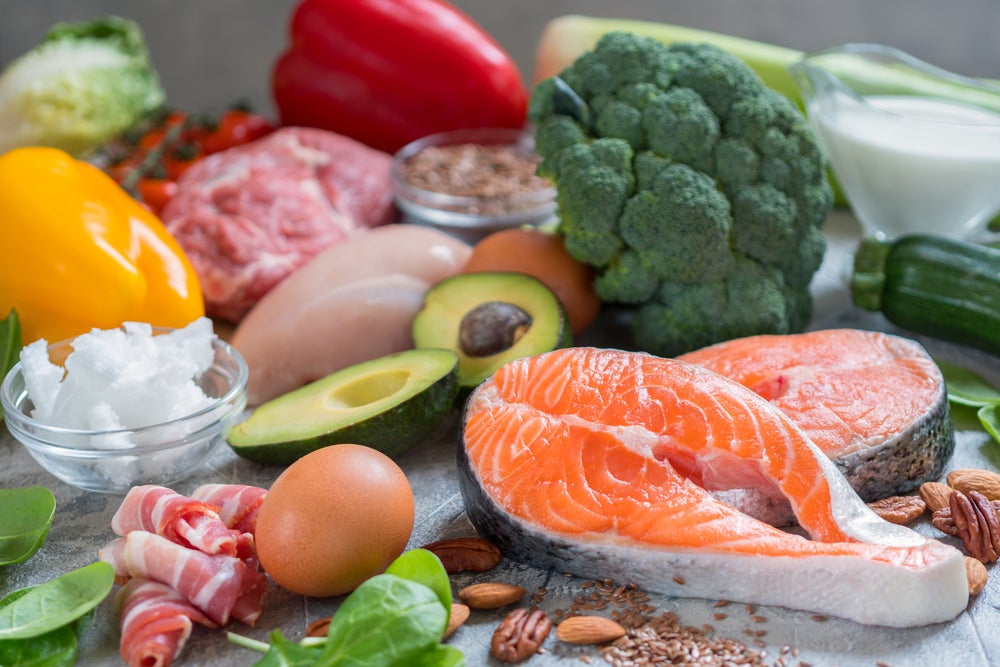Can the Keto Diet Work for Endurance Athletes?

It seems like every week we hear of an endurance athlete thriving on a ketogenic diet. While advocates boast about endless energy, bonk-free training and racing, and rapid weight loss, there are several limitations beyond strict dietary compliance, bad breath, and digestive issues.
What Is Ketosis?
Under normal physiological conditions, glucose is the primary energy source of the brain. When dietary carbohydrates are restricted and insulin drops, the body becomes stressed and requires an alternative energy source to maintain normal brain cell metabolism. Fatty acids are subsequently mobilized and broken down in the liver to produce ketones. The liver then releases ketone bodies into the bloodstream where they travel to the brain to be used as the new fuel source.
Although the ketogenic diet was originally developed as a drug-free way to treat epilepsy, athletes are now voluntarily putting their bodies into a state of ketosis in order to oxidize fatty acids and use ketones for energy. To achieve ketosis, dietary carbohydrate intake must be restricted to less than 50 grams per day, which is equivalent to one small banana and potato. In a ketogenic diet, around 75 percent of calories are derived from fats, 20 percent from protein, and the remaining 5 percent from carbohydrates.
What Carbs Do For You As A Triathlete
From a performance standpoint, triathlon—even longer-distance events—involves relatively short-duration, high-intensity efforts in training, to boost your anaerobic threshold, and in racing, as you quickly transition from swim to bike to run, climb hills, accelerate past a competitor, and sprint to the nish line. These high-intensity efforts are highly dependent on carbohydrate metabolism and a ketogenic diet may reduce the capacity to utilize carbs, thus compromising your specific energy needs during training and racing. Since you don’t need to be in a ketogenic state to improve your fat-burning abilities (endurance training will naturally do this for you), focus on a nourishing diet to keep your muscles and liver stocked with glycogen. A well-balanced diet should contain 4-10g/kg body weight/day carbohydrates (that’s about 270 to 680 grams of carbs for a 150-pound person), 1.5-1.8g/kg/day protein, and 1g/kg/day fat.
The Bottom Line
You probably know that one athlete who has succeeded in sports on a ketogenic diet. But for each person whose body performs in a state of ketosis, there are many more who have overhauled their diet to induce ketosis, only to disrupt other body systems—which consequently wrecked metabolic and hormonal health and impaired race-day performance. Since real-life athlete applications have failed to consistently show promising sustainable improvements in endurance performance, more research is needed to establish the e ectiveness of a ketogenic diet for triathletes.
RELATED: Ironman Legend Dave Scott Shares His Nutrition Tips